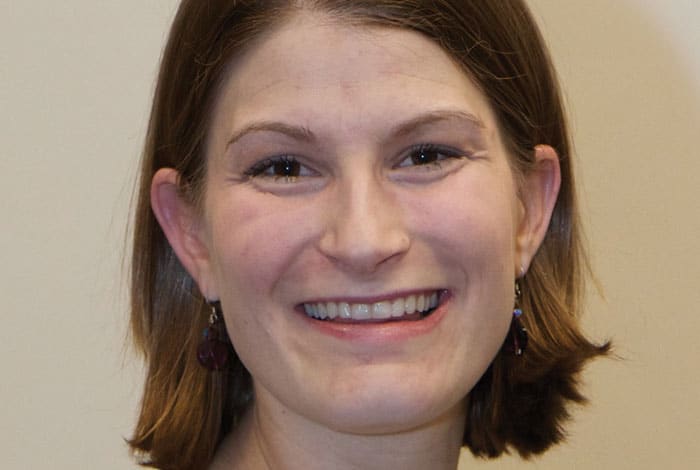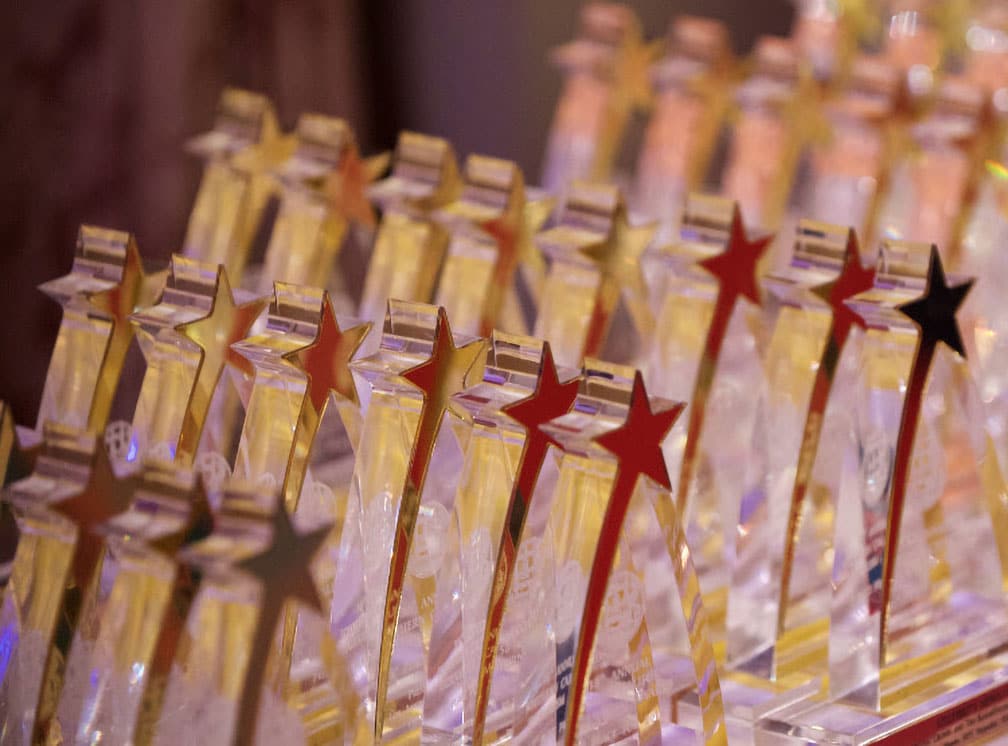 Rabbi Julia Weisz
Rabbi Julia Weisz Julia Weisz, rabbi and director of education at Congregation Or Ami in Calabasas, has always made creating safe, brave spaces for their community — especially Or Ami’s youth — a priority. “The childhood that I had in a Jewish community gave me the pride to be Jewish and the confidence to be Julia,” Weisz, or Rabbi Julia, as she’s known, told the Journal. “It was crucial in my Jewish development and personal development.”
Or Ami’s slogan is “You’re home,” she said. “Rabbi Paul Kipnes and I have created a beautiful and comprehensive curriculum and experience that is relevant to today.”
Rabbi Julia believes it’s important for kids to not only learn about history from 100 years ago, but be able to talk about things like consent, intimacy and how to change a tire.
“I think that anyone seeking community with children knows that children right now are completely overwhelmed and overcommitted,” she said. “But I do believe the Jewish community offers something different.”
When Weisz was very young, her parents went through a tumultuous divorce. So she, her mother and sister moved in with her grandmother.
“My grandma was very involved in the Conservative synagogue in Tucson, Arizona, and my mom and my grandmother decided that it would be best for my sister and I to be in a place that was like a bubble,” she said. “They went to the rabbi of the day school and my grandmother was like, ‘They don’t have money, and they don’t have a home right now, but … these kids [need] to come to school here.’”
The rabbi supported Weisz’ family for the seven years of their Jewish education there.
“I do think that I became me in that space,” Weisz said. “There were definitely other paths I could have taken, had it not been for a school that really held my hand and believed in me — and I really knew they did. I struggled with a lot of emotional stuff the first couple of years of elementary school with my parents’ divorce.”
She continued, “They heard me, they saw me. My friends loved me for me, and I just don’t know that would have existed anywhere else except for this little private Jewish day school.”
Fast forward to when Weisz’s mom married her stepdad. They moved to Texas, and she went to a small, Modern Orthodox day school for seventh and eighth grade. “It was a great way for me to get integrated into a new community fast,” she said.
They also belonged to Temple Emanu-El in Dallas; her stepfather was Reform, and they wanted to participate as a family. Weisz didn’t connect very well at such a large temple. However, she wanted to make money babysitting.
“I took all the classes — confirmation and post-confirmation — got to know the rabbis and started babysitting their children,” she said.
When it was time for college, Weisz applied to schools with big Jewish populations, including Tulane and American University, but ended up going to Southern Methodist University (SMU), where her stepdad was a law professor. When she toured there, it clicked for her that a small class environment — and a small Jewish community — would be beneficial.
SMU had a small Hillel, trying to engage the small Jewish community, and Weisz really wanted to be part of that. “Looking back, I realized I’d rather help lead something than get lost in the crowd,” she said.
Starting the summer after freshman year at SMU, Weisz began interning at her family’s temple. She contacted David Stern, who’s still senior rabbi — and whose children she babysat for — and asked if there was anything she could do to help out. He said, “Absolutely.” Stern and Peter Berg — who was a newer rabbi there at the time — became her mentors.
While at the Temple, Weisz created programs for kids during Friday night services, and realized she loved doing programming for kids. She also shadowed Rabbi Berg, which led to all sorts of experiences.
“They invited me to clergy meetings and to staff meetings and town hall meetings,” she said. “I was able to go to so many things. I preached. I led services. And I realized that’s what I wanted to do … I liked the idea of spiritual and emotional healing.”
She worked at the Temple through the rest of college, and, after graduating from SMU with a BA in Psychology and Religious Studies, Weisz moved to Los Angeles to be with her then boyfriend (now husband) and applied for rabbinical school. Weisz earned her Master’s degree in Jewish Education in 2009, both from Hebrew Union College-Jewish Institute of Religion in Los Angeles.
Ordained as rabbi in May 2011, Weisz was consecrated as Or Ami’s second rabbi on October 13, 2011, through a Sukkot-inspired installation ceremony during a Campfire Shabbat.
Rabbi Julia loves being part of Or Ami. During her time at the synagogue, she has created vibrant youth programs that provide essential building blocks. She is always reimagining curricula and engagement efforts to keep up with the needs of the times, for all ages and stages of development.
Weisz said her background influences everything she’s created for Or Ami.
“Jewish communities can be one of the greatest gifts ever, because the Jewish community is around for the entire life cycle journey for both the ups and the downs.“
“I don’t think we will ever stop needing space for people, where they can feel safe to express themselves,” she said. “Jewish communities can be one of the greatest gifts ever, because the Jewish community is around for the entire life cycle journey for both the ups and the downs. Clergy are trained, and want to be accessible and available and make personal connections. At the heart of our job is that we want to be your spiritual guides.”
Rabbi Julia lives in Agoura Hills with husband, David, children Noam, Maddie and Eve, dog, Pitzi, and bearded dragon, Ninja.
Fast Takes with Rabbi Julia Weisz
Jewish Journal: What is your favorite Jewish food?
Julia Weisz: I love bagels and lox.
JJ: What is your perfect Friday night Shabbat?
JW: Being able to participate in the cooking of a dinner that is low-stress, potentially even making a challah that actually comes out well and sitting down with my family and having everyone share something about the week that was special for them.
JJ: What message do you have for someone considering their own rabbinical journey?
JW: Find a partner in the Jewish world — someone you trust — that you can study with and be challenged by.























 More news and opinions than at a Shabbat dinner, right in your inbox.
More news and opinions than at a Shabbat dinner, right in your inbox.